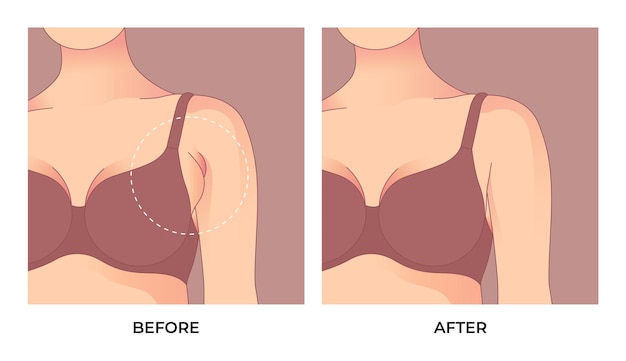Breast Reduction Before or After Weight Loss

Introduction
Deciding to undergo a breast reduction surgery is a significant step towards improving one’s quality of life. However, for individuals who are also on a weight loss journey, there is often confusion about whether to have the procedure before or after losing weight. In this comprehensive guide, we will explore the factors that should influence your decision, the benefits of both approaches, and considerations for a successful breast reduction journey.
Understanding Breast Reduction
Breast reduction, medically known as reduction mammoplasty, is a surgical procedure designed to reduce the size and reshape the breasts. This surgery can alleviate physical discomfort, improve body proportions, and enhance overall well-being. People often consider breast reduction for various reasons, including chronic back pain, neck pain, shoulder grooving, and limitations in physical activities due to excessively large breasts.
Weight Loss and Breast Size
The relationship between weight loss and breast size is complex. When an individual gains weight, the breasts can also increase in size due to the storage of excess fat in this area. Conversely, when someone loses weight, they may experience a reduction in breast volume as fat stores are depleted.
Breast Reduction Before Weight Loss
Pros:
- Immediate relief from physical discomfort.
- Enhanced body proportions, which can boost self-esteem.
- Improved mobility and participation in physical activities.
- Potential insurance coverage if medical necessity is established.
Cons:
- Weight loss can alter breast size and shape post-surgery.
- Increased risk of additional surgery if further reduction is desired.
- Possible interference with weight loss goals.
Breast reduction before weight loss may be an excellent choice for individuals who suffer from severe physical discomfort due to large breasts and want immediate relief.
Breast Reduction After Weight Loss
Advantages:
- Allows for more accurate assessment of desired breast size.
- Minimizes the risk of secondary surgeries due to weight loss.
- Complements overall body contouring efforts post-weight loss.
Disadvantages:
- Delayed relief from physical discomfort.
- Requires maintaining a stable weight before surgery.
- May not be covered by insurance in all cases.
Breast reduction after weight loss is suitable for those who want to align their breast size with their post-weight loss body and are willing to wait for surgery.
Consultation with a Plastic Surgeon
Before making a decision, consult with a board-certified plastic surgeon who specializes in breast reduction procedures. During the consultation, discuss your weight loss goals, desired breast size, and overall expectations. A qualified surgeon will guide you in choosing the most suitable approach for your unique situation.
Surgical Techniques
Breast reduction can be performed using various techniques, including the vertical incision, anchor incision, and liposuction. The choice of technique depends on factors such as breast size, skin elasticity, and surgeon preference. Your surgeon will recommend the most appropriate method for you.
Recovery Process
After breast reduction surgery, you can expect some swelling, bruising, and discomfort. It’s essential to follow your surgeon’s post-operative instructions carefully. You may need to wear a surgical bra and limit strenuous activities during the initial recovery period. Full recovery typically takes several weeks.
Achieving Your Ideal Body
Many individuals combine breast reduction with other body contouring procedures, such as liposuction or tummy tucks, to achieve their desired body shape. It’s crucial to have realistic expectations and openly discuss your goals with your surgeon.
Emotional and Psychological Impact
Breast reduction can have a profound emotional and psychological impact. It often leads to increased self-confidence, improved body image, and a more active lifestyle. Be prepared for positive changes in your mental well-being along with the physical benefits.
Choosing the Right Surgeon
Selecting a skilled and experienced plastic surgeon is crucial to the success of your breast reduction journey. Research potential surgeons, check their credentials, and read patient reviews to ensure you choose a reputable professional.
Financial Considerations
The cost of breast reduction surgery varies depending on factors such as geographic location, surgeon fees, and hospital charges. In some cases, insurance may cover the procedure if it is deemed medically necessary. Explore your financing options and insurance coverage before scheduling surgery.
Risks and Complications
Like any surgical procedure, breast reduction carries some risks, including infection, scarring, and changes in nipple sensation. However, choosing a qualified surgeon and following post-operative care instructions can help minimize these risks.
Patient Testimonials
Real-life stories from individuals who have undergone breast reduction can provide valuable insights into the surgery’s impact on their lives. Reading about others’ experiences can help you make an informed decision.
Conclusion
Deciding whether to have breast reduction before or after weight loss is a personal choice that should be based on your unique circumstances and goals. Consult with a qualified plastic surgeon to discuss your options and create a personalized plan for achieving the results you desire.
Frequently Asked Questions (FAQs)
- What is the recovery time after breast reduction?
- The initial recovery period typically lasts a few weeks, but full recovery may take several months.
- Can breast reduction surgery affect breastfeeding?
- While breast reduction may impact breastfeeding, many women can still breastfeed successfully after surgery.
- Are there non-surgical alternatives to breast reduction?
- Non-surgical options, such as supportive bras and weight management, may provide some relief, but they are not as effective as surgery for significant size reduction.
- Will my scars be visible after the surgery?
- Scarring is a natural part of any surgical procedure, but a skilled surgeon will aim to minimize the appearance of scars. They typically fade over time.
- How long do the results of breast reduction last?
- The results of breast reduction can be long-lasting, but factors like aging, weight fluctuations, and pregnancy can affect breast size and shape over time.
In conclusion, breast reduction surgery is a transformative procedure that can improve your physical comfort and emotional well-being. By considering your weight loss journey and consulting with a qualified surgeon, you can make an informed decision that aligns with your goals. Remember that each person’s situation is unique, so take the time to explore your options and prioritize your health and happiness.




